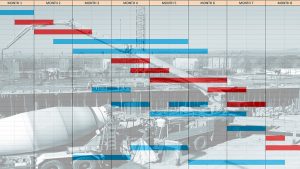The British Columbia Construction Association (BCCA) reported some encouraging news recently.
The B.C. attorney general’s staff has been given the go-ahead to convene a large-table working group to consult on creating prompt payment legislation (PPL).
“We want to set up a broad industry discussion group to get all the different aspects of PPL out on the table,” said BCCA president Chris Atchison. “Next to the labour shortage, prompt payment, or the lack thereof, is BCCA’s biggest concern.”
According to a recent survey of its members, 82 per cent of contracting companies were paid late for substantially completed work at least once in the past year.
“It’s not unusual for contractors to go 90 or even 120 days without being paid,” said Atchison. “Many are carrying debt long after their work on a project has been completed.”
Atchison said B.C. lags behind other Canadian jurisdictions where PPL has already been enacted or is on its way.
“Legislation has been brought in from Ontario west to Alberta, as well as Nova Scotia and New Brunswick,” said Atchison.
BCCA hopes PPL will be passed in B.C. in fall 2024 or spring 2025, “based on an assessment of the current legislative calendar.”
“We’re not going to stop until legislation is passed,” said Atchison.
Maxime Spakowski, principal and CEO of Ferro Building Systems Ltd. in Surrey, B.C., supports BCCA’s PPL initiative “100 per cent.”
“I’ve been following the issue for 20 years,” said Spakowski. “It’s not an industry issue, but a B.C. economic development issue.”
Because of late payments to construction contractors, she said, there is over $4 billion that that could be better used for investment in new projects.
“Ferro needs to keep $2 million in reserve to pay labour and suppliers on time, to ensure those businesses stay open,” said Spakowski. “That money shouldn’t be sitting idle. But we don’t have much choice.”
PPL can level the construction playing field by eliminating the unfair advantages some companies have.
“We are the last province in Western Canada to adopt PPL,” said Spakowski. “Why is the government stalling? On two recent projects in Alberta Ferro was paid on time. Wouldn’t it be great if we were paid on time in B.C. too?”
Bill Black, president and chief operating officer of Calgary Construction Association, said Alberta’s PPL was passed in August 2022.
“The members are generally positive about the legislation,” said Black. “We all hope that it brings more certainty so that contractors can concentrate on building things instead of administration.”
At the same time, Black said, “PPL isn’t a silver bullet.”
“There’s a learning curve and it’s taking time for everyone to learn the rules,” he said. “For example, the legislation applies to Alberta municipalities, but not the provincial government, which is a source of contention.
“And some of the larger companies are challenging the legislation. We’re not out of the woods yet.”
The Saskatchewan Building Lien Act was amended in March 2022 to include PPL, said Shannon Friesen, CEO of the Saskatchewan Construction Association (SCA).
“The process of bringing in the legislation took a long time, beginning in 2015,” said Friesen.
PPL has benefited SCA’s members by keeping the payment process moving smoothly.
“So far there have been only three adjudications,” said Friesen. “And the provincial government hasn’t had any trouble adjusting to the legislation.”
Some PPL exemptions have rankled SCA.
“Exempted from the legislation are companies involved in mining and mineral exploration, power transmission, and architectural and engineering services,” said Friesen. “There’s no good reason for these exemptions; everything should be consistent across the board.”
Not everyone in construction is convinced of the efficacy of PPL, however.
Neil Moody, CEO of Canadian Home Builders’ Association British Columbia, said his members oppose PPL for residential construction work.
“Prompt payment would add unnecessary administration and legal costs to an industry that already is subject to an enormous regulatory burden,” said Moody. “PPL will negatively impact the rate of housing construction, which is something we cannot afford to do in today’s crisis.”
Like Moody, Ron Rapp, CEO of Homebuilders Association Vancouver, said HAVAN is against adopting PPL in the residential construction sector “and has been since we have heard of such legislation being rolled out in Ontario and other jurisdictions across Canada.”
Rapp said the association “isn’t necessarily opposed” to the application of PPL in some construction sectors, “particularly in ICI, public sector works and infrastructure works,” but it doesn’t support the policy as currently put forward.
“Advancement of PPL through a one-size-fits-all approach has serious implications for the homebuilding members of our association,” said Rapp.











Recent Comments
comments for this post are closed